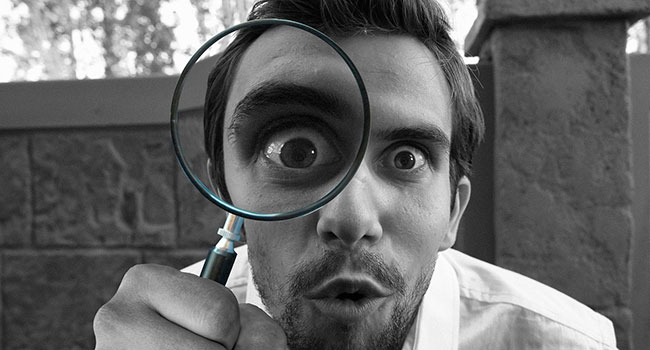 Fact-checking takes us past the spin and straight to the truth. Or maybe not.
Fact-checking takes us past the spin and straight to the truth. Or maybe not.
A closer look at almost every fact-checking organization shows a great deal of politics and vested interests involved.
Years ago, I went to Snopes.com whenever someone sent me an email thread I wasn’t sure about. I even recommended to others that they do the same.
As time went on, I became less confident of Snopes. Sometimes the conclusion they reached (true, partly true or false) didn’t match the evidence they laid out – especially when it had to do with right-wing politics.
Snopes’ married co-founders, David and Barbara Mikkelson, divorced and had legal battles over their company. Disclosures in court led the Daily Mail to present the first meaningful scrutiny to the fact checkers themselves. As it turned out, there was plenty of disingenuousness.
When Snopes first made inquiries to companies in early years, they put “San Fernando Valley Folklore Society” on the letterhead. The fictional entity helped get more responses to fact-checking inquiries.
Barbara claims David embezzled company finances and spent the money on prostitutes. David’s lawyers disagreed. In time, the two couldn’t even agree on the arbiter they had chosen together to settle disputes.
David hired Elyssa Young as an administrative assistant and made her his next wife. Young, a former Libertarian candidate and nude model in adult magazines, was still getting positive reviews of her escort services as late as March 2015. Meanwhile, the website claimed to be “painstaking, scholarly and reliable” in its job.
The Daily Mail article led Forbes author Kalev Leetaru to make enquiries. Leetaru discovered that Snopes might only name one author of a fact-check, even though other staff may have contributed to it. In addition, they only reached out to people mentioned in an article they fact-checked and not the author of the article they were criticizing. These practices betrayed basic journalistic principles.
PolitiFact and PunditFact were launched by the Tampa Bay Times in 2007 and are now run by Poynter Institute, a non-profit that owns the Times. Reader surveys pick the “lie of the year,” and in 2015, 2017 and 2019 a statement by Donald Trump won the award.
In 2017, the winning “lie” was that Russian election interference was a “made-up story.” Considering the dubious origins of the dossier that started it all, and the fact that Robert Mueller’s report concluded collusion never happened, this conclusion seems more political than fact-checking. It might have also been an extension of a long trend.
In 2011, University of Minnesota political science professor Eric Ostermeier analyzed 511 PolitiFact stories from the previous 12 months. He found Republicans were assigned “Pants on Fire” or “False” ratings 39 per cent of the time and the Democrats only 12. So were Republicans more prolific liars or were the fact-checkers biased?
Truth and lies, like beauty and ugliness, are in the eyes of the beholder. There’s nothing like sponsorship to create selective vision, and Facebook is sponsoring a lot of fact checks.
On Aug. 18, 2018, a fact check by USA Today said Millie Weaver’s ShadowGate documentary relied on “insinuations” and spread misinformation and conspiracy theories about major events. A line at the bottom of the article mentions that Facebook sponsors USA Today’s fact checks. What the article fails to mention is how the film criticizes Facebook and its fact-checking in a damning way.
Patrick Bergy features prominently in the film. He said his former boss Gen. James Jones had direct connections to Cambridge Analytica, a company that scraped information from Facebook to influence politics. Facebook CEO Mark Zuckerberg apologized to a Senate committee over the affair. Yet one month later, Facebook partnered with the Atlantic Council, chaired by Jones, to restore election integrity worldwide.
“So, essentially, what they did was they partnered with Cambridge Analytica, again,” Bergy said in the film.
In 2011, Mark Hemingway of The Weekly Standard criticized fact-checking projects as “The liberal media’s latest attempt to control the discourse.” He concluded that they “aren’t about checking facts so much as they are about a rearguard action to keep inconvenient truths out of the conversation.”
Fact-checkers always have their own biases. The most definitive thing we can say about them is their assessment isn’t definitive. At best, fact-checks provide a useful counterpoint worth considering. At worst, they muddy the waters with their own disinformation.
People need to think for themselves and those who can’t are bound to get fooled.
Lee Harding is a research associate with the Frontier Centre for Public Policy.
Lee is a Troy Media Thought Leader. Why aren’t you?
For interview requests, click here. You must be a Troy Media Marketplace media subscriber to access our Sourcebook.
The views, opinions and positions expressed by columnists and contributors are the author’s alone. They do not inherently or expressly reflect the views, opinions and/or positions of our publication.


